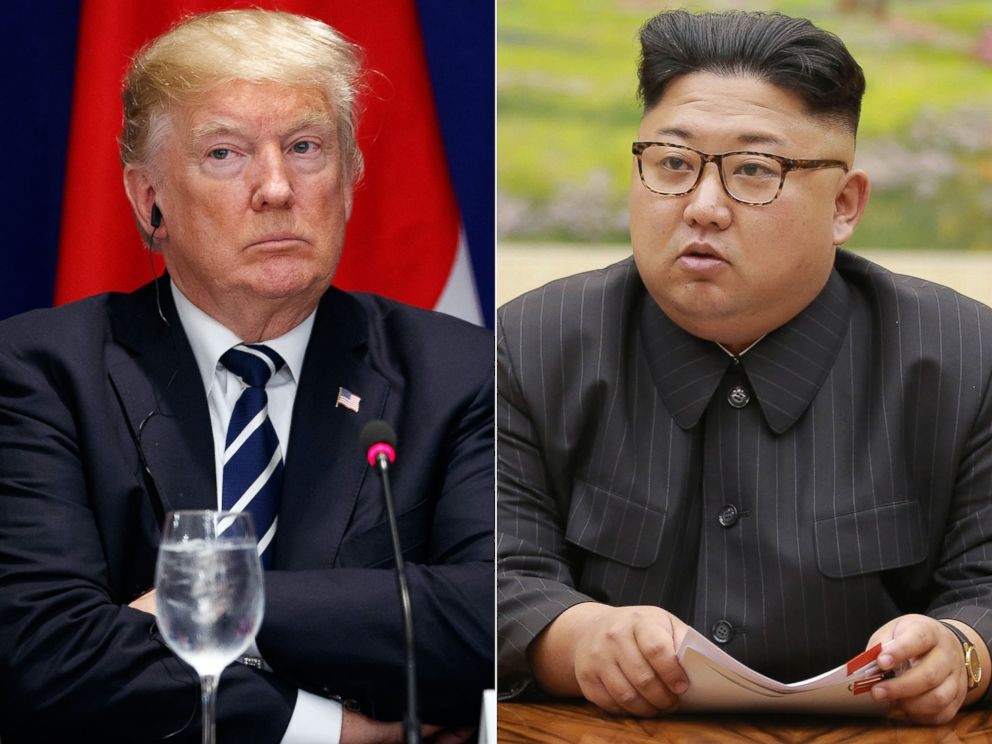Trump to push for nuclear dismantlement before sanction relief
 Sarah Park '21
Sarah Park '21
President Trump will push for North Korea to quickly dismantle its nuclear weapons during the summit. The administration stated that is not willing to give large sanction relief for the freeze on nuclear tests.
The Chinese Foreign Ministry quoted Kim saying that he sought “phased, synchronized measures to achieve peace” where both the U.S. and North Korea would make concessions across a span of years. On the contrary, the Trump Administration desires a “big bang” approach through which both sides would make large concessions from the beginning. Experts argue that it is necessary to make sure that steps toward denuclearization are irreversible, which may include visits by international monitors.
North Korea has stated that it will close its nuclear sites and suspend its long-range missile tests. Kim Jong Un added that the nation would not share its knowledge about nuclear weapon making with other countries and described the completion of the nuclear program as a “miraculous victory”. However, North Korea has not mentioned suspension of shorter range missile testing that could strike neighboring nations such as South Korea and Japan.
In response to North Korea’s statements, President Trump tweeted: “North Korea has agreed to suspend all Nuclear Tests and close up a major test site. This is very good news for North Korea and the World - big progress! Look forward to our Summit.”
Kim is scheduled to meet with Moon next week and the summit with Trump is expected to occur in June. The potential venue for the summit is yet to be decided. It is expected to be in a neutral location away from the Korean peninsula such as in Europe or Southeast.
Mike Pompeo, Director of the CIA, visited Pyongyang and stated that the summit could lead to the release of three detained U.S. citizens. Trump has stated that the U.S. is “fighting very diligently to get the three Americans back.”
The longest held prisoner Kim Dong-chul has been charged with spying, stealing secrets, and engaging in hostile acts against North Korea since 2016. Kim Sang-duk, or Tony Kim, and Kim Hak-song, who taught at the Pyongyang University of Science and Technology, which was founded by a Korean-American Christian, have been detained since spring of 2017. Their charges have not been outlined and their arrests occurred at a time of tension between the United States and Pyongyang, after North Korea tested missiles and the U.S. reacted by launching a Vinson strike to the area.
Although the President has voiced optimism and expectation regarding North Korea’s stance, experts urge caution regarding North Korea’s statement.
Victor Cha, senior adviser and Korea chair for the Center for Strategic and International Studies, reiterated that it was not a denuclearization statement. He described the statement as a ploy for North Korea to be accepted as a responsible state.
He said, "The North Korean government had “already stated that they would halt all testing while in dialogue...This statement formalizes that promise. [T]he statement talks about a test ban, no first use, and no transfer – all the trappings of a ‘responsible’ nuclear weapons state – which is what they ultimately wanted to be accepted as.”
Robert Kelly, a professor at South Korea's Pusan National University expressed similar skepticism about denuclearization.
He stated, "We're gonna have to see things actually being sawed in half or cut in half or detonated before people are gonna actually believe it. I mean, North Korea has a real credibility problem going back several decades”.
In addition, it is necessary to decipher the meaning of denuclearization for both the United States and North Korea. When Kim mentioned discussing denuclearization in March, he did not refer to ending the nuclear weapon program. He was referring to denuclearization on the Korean peninsula, including South Korea. The United States has not kept nuclear weapons in South Korea since 1992, but some argue that North Korea views U.S. military presence as a nuclear threat. "They really are threatened by superior American and South Korean military power, they need nuclear weapons to try and prevent an invasion in their view...They feel the need to equate their nuclear program with the (US and South Korean) military alliance and claims the military alliance is a nuclear threat, when there's no real grounds for that.” John Pollack stated.
Some experts argue that North Korea’s openness to discuss denuclearization may even be an attempt to build distrust between the United States and South Korea.
John Pollack, senior research associate at the Middleburg Institute of International Studies at Monterey, stated, "The pessimistic interpretation is that Kim is intent on making concession after concession in private to show Moon that he is the reasonable one, with the expectation that Trump will ultimately be unable or unwilling to deliver.”
Sources:
https://www.wsj.com/articles/north-korea-suspends-nuclear-long-range-missile-tests-and-plans-to-close-nuclear-test-site-1524264301
http://abcnews.go.com/International/analysis-president-trump-kim-jong-insults-talks/story?id=53654338
https://www.npr.org/sections/thetwo-way/2018/04/21/604544786/trump-north-koreas-suspension-of-nuclear-tests-shows-progress
https://www.wsj.com/articles/trump-will-tell-kim-jong-un-that-dismantling-nukes-must-precede-economic-benefits-1524433979
https://www.cnn.com/2018/04/20/asia/kim-trump-moon-denuclearization-intl/index.html
https://www.theguardian.com/world/2018/apr/21/trump-praises-north-koreas-progress-as-expert-warns-against-optimism